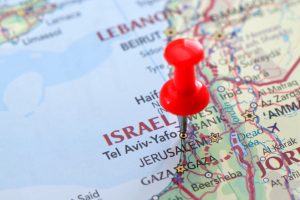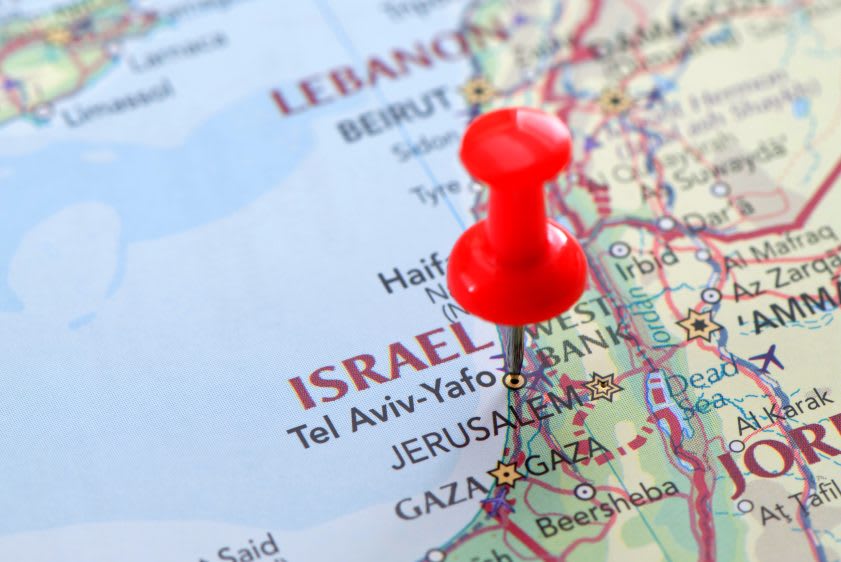When a convert stands in the mikvah (ritual bath house) about to immerse and undergo an existential transformation, we ask him or her a series of questions. One of the most poignant and yet seemingly irrelevant is the following: “You know that Jews have been subject to persecution, anti Semitism, and attempted extermination throughout the millennia. If you become a Jew, you will join this hated, targeted people. Are you prepared to share in the destiny of the Jewish people for good and for bad?”
At every single conversion with which I have been involved, the candidates all responded in the affirmative. Invariably, I think to myself–of course they answered yes. We live in a free, tolerant and pluralistic society that allows us to practice religion freely. What are the chances that they will suffer for becoming a Jew?
My entire perspective changed this week when I read an incredible article (Building in a State of Hope) by a righteous convert who subsequently made aliyah and indeed has linked his safety, security and destiny with that of the Jewish people. In reflecting on the experience of living through his first siren and the sound of the explosion that followed just as he was welcoming Shabbat in Gush Etzion, he referenced the conversation at the Shabbat table that night, and the question of his host’s young son:
“Why do they want to hurt us?” It was the kind of question only a young child could ask, simultaneously piercing and innocent. As we sat talking later in the evening, trying to make sense of what felt like a new, heavier reality, my friend Judah explained that he could have answered any other question that his son had asked. Just not that one. He felt helpless looking into his own son’s eyes.
Throughout our people’s history, Jewish parents have struggled to answer that most difficult and painful question. While many reasons and explanations for anti-Semitism have been offered, none remove the ache or dispel the agony of feeling hated, loathed and despised.
While there is no completely satisfying answer to the question that young boy asked his father, there is a response that Jewish parents can provide today, that they could not in good faith articulate for the last two thousand years.
Rav Shlomo Aviner, Rosh Yeshiva of Ateret Cohanim and Rav of the community of Beit El was asked a question that I have not received in Boca Raton and I doubt my colleagues in North America have been asked either. In his responsa, She’eilat Shlomo 4:87, he address the question: Is it proper to recite the bracha of shehechiyanu (blessing to G-d for giving us life) on purchasing a new gun?
Rav Aviner provides a long halachic explanation and defense of why he feels a shehechiyanu is warranted, even though the need to own a gun is sad and unfortunate. His closing argument touched me deeply and I share it with you:
That we have guns shouldn’t elicit sadness that we still have wars and conflicts. Indeed, the opposite is true: It should elicit happiness that we have merited to be an am chofshi b’artzeinu (free nation in our homeland), that we have an established Jewish government, we have an army and a police force, that we are no longer the punching bag of the wicked nations, but rather we have the capacity to protect ourselves. Would it even occur to you that when the War of Independence began and we had weapons in our hands to defend ourselves after 2,000 years of Jewish blood being spilled freely, that one shouldn’t recite shehechiyanu with joy and gladness?! That joy continues to carry us and protect us from then until now. And for that reason, a shehechiyanu should be recited when an Israeli soldier puts on his or her IDF uniform for the first time.

We cannot explain to our children why they want to hurt us, but finally, after 2,000 years we can reassure them that we won’t allow our enemies to hurt our people without doing everything that we can to provide protection and security. No longer will Jews go like sheep to the slaughter as they have been accused of throughout the centuries. No, today we have the technology, the resources and the autonomy to shape our own destiny and to defend our own people. But there is something else that we have that truly distinguishes our soldiers and gives them, and us, an edge over our enemies.
A few weeks ago, BRS partnered with Temple Beth El in showing the Yoni Netanyahu story. When he was in high school, Yoni’s father received an academic appointment in Philadelphia and so the family moved there for a few years. Yoni grew restless to return to Israel. He wrote in a letter, “I yearn for a place that is narrow, hot, rotten, filthy — a place that’s more than 60 percent desert…The only things people talk about are cars and girls. Freud would have found very fertile soil here.” Yoni was a prolific writer who sent letters to family and friends regularly. Upon his death the letters were collected into a book. A theme that pervades throughout was his nationalism and willingness to die for his homeland.
Yoni Netanyahu was an exceptional soldier and leader in many ways, but his courage, selflessness and willingness to sacrifice for his people and homeland are the norm of most soldiers in the IDF.
This past Shabbat, Sergeant Benjamin Anthony spoke at BRS and moved most of the room to tears with his passionate commitment to serve in the IDF with all that it entails. He described the disappointment of many of the reserve soldiers who were poised to enter Gaza to eliminate Hamas terrorists in being sent home. They are not violent or in search of war, he said, they are simply committed and ready to defend their people and their land, even if it means paying the ultimate personal cost. Yes, the Iron Dome had an 85% success rate, noted Sergeant Anthony, but the reservists of the IDF showed up at a higher rate of 100%.
Chanukah is the celebration of our military victory in the land of Israel against enemies that sought our destruction and elimination. Then, like now, we were the few against the many. Haneiros halalu kodesh heim, these candles are holy, we say after lighting the candles each night. These candles are holy and sacred as they commemorate the miracle of re-consecrating our holy Temple and the military triumph against all odds.
Rav Aviner ends his responsa by quoting his Rebbe, Rav Tzvi Yehudah Kook zt”l who wrote:
“Fighting to protect our homeland is a mitzvah (a commandment), the mitzvah of all Klal Yisroel. Therefore, everything connected with it, every gun and every weapon that is our response to our enemies, everything associated with establishing and protecting malchus Yisroel (Jewish sovereignty), it is all kodesh (holy).”
Rav Aharon Lichtenstein related that once when he returned to America and was visiting with his father in law, Rav Soloveitchik, he posed a series of questions from students who were serving in the IDF. One student worked in the tanks division and his job was cleaning out and maintaining the tanks. Often his uniform got covered in oil and grime and he wanted to know if he needed to change before davening mincha (praying the afternoon service), something that would be terribly inconvenient and difficult. The Rav looked at Rav Lichtenstein and wondered out loud, “Why would he need to change? He is wearing bigdei kodesh (holy clothing).”
The candles of Chanukah are holy for what they represent, and our precious soldiers who risk their lives to protect our people are instruments of holiness for what they represent. No, we cannot fully answer the question my nephew asked my brother at the Shabbat table that Friday night. But we are incredibly blessed to be able to tell our children that the Jewish people have the greatest, most passionate, loyal, courageous and holy army in the world.
Shabbat Shalom and Happy Chanukah!
Rabbi Efrem Goldberg is the Senior Rabbi of the Boca Raton Synagogue (BRS) in Boca Raton, Florida. He serves as Co-Chair of the Orthodox Rabbinical Board’s Vaad HaKashrus, as Director of the Rabbinical Council of America’s South Florida Regional Beis Din for Conversion, and as Posek of the Boca Raton Mikvah.
The words of this author reflect his/her own opinions and do not necessarily represent the official position of the Orthodox Union.

